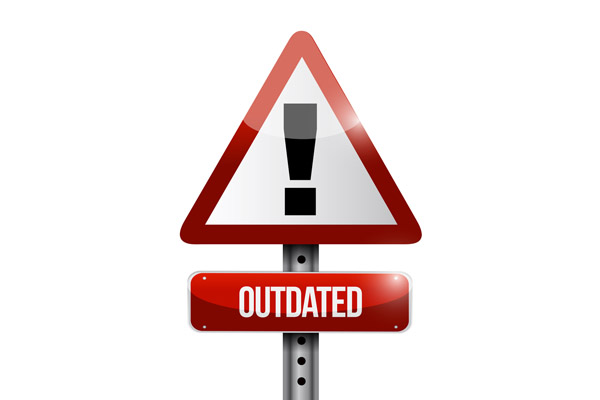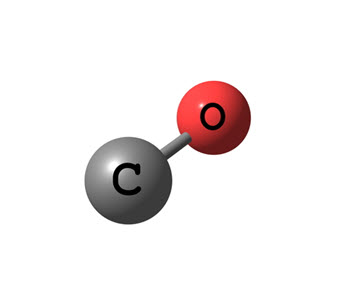
Increased incidents of extreme weather conditions in the United States have resulted in a rise in power generator demands. Power outages can happen, and standby generators help you through them. You need to make sure that your generator is always in good condition so you avoid any troubles. However, like all machinery, a power generator will eventually reach the point where it can no longer perform the way it used to, even with good standby generator maintenance. This article discusses what you should look for when your whole-house generator is displaying signs that a standby generator replacement is right around the corner.
Signs it’s Time to Replace Your Standby Generator
Contents
- 1 Signs it’s Time to Replace Your Standby Generator
- 1.1 Standby Generator Has Trouble Starting
- 1.2 Excessive Fuel Consumption
- 1.3 Frequent Whole-House Generator Failures & Repairs
- 1.4 Your Backup Generator’s Age
- 1.5 Your Needs Have Outgrown The Size of Your Standby Generator
- 1.6 Excessive Standby Generator Wear
- 1.7 Your Backup Generator Is Outdated
- 1.8 Your On-Demand Generator Emits Excess Carbon Monoxide (CO)
- 1.9 Inconsistent Power Supply From Your Whole-House Generator
- 1.10 Power Generator Fuel Leaks
- 1.11 Conclusion
- 2 Call PFO Heating & Air Conditioning For All Your Standby Generator Needs
Read on so you can learn the various symptoms that point to your generator requiring a replacement.
Standby Generator Has Trouble Starting
A standby generator is built to start as soon as a power outage occurs. If you notice that your generator has a delay when starting up or has trouble starting at all, it may be time to replace it. However, learn the causes for this type of issue, especially if the typical solution is a replacement unit. You can also call a professional for an assessment, like PFO Heating & Air Conditioning.
Excessive Fuel Consumption

Various standby generators use fuel differently, as each model is unique. Observe how your generator consumes energy. Once you know how it consumes fuel, you can determine when the consumption rises to extreme levels.
Excessive consumption of fuel points to a generator losing speed. Therefore, you should consider getting an upgrade, as modern models consume fuel more efficiently and effectively.
Frequent Whole-House Generator Failures & Repairs
It is time to get a generator replacement if you notice that it often fails, requiring repairs that cost a considerable amount. A new generator will help eliminate costs otherwise spent on getting your generator repaired over and over again.
Preventative whole-house generator maintenance is a good way to ensure your generator keeps running. However, if it still fails even after upkeep, getting a replacement helps avoid trouble during power outage emergencies.
Your Backup Generator’s Age
The standby generator’s service life is reliant on its size and upkeep. A diesel generator can operate for at least 12,000 hours and at most 20,000 hours before the engine requires an overhaul.
When power outages happen often, the generator will run for more hours. This can shorten the life expectancy of your generator. Replacing the generator that has served you well for an extended period is a great way to be prepared for an emergency.
Your Needs Have Outgrown The Size of Your Standby Generator
When your business grows, or you move to a larger home with more electrical appliances, you will have increased energy needs. This means your generator may struggle to meet your needs, which can cause excessive fuel usage and shortened generator lifespan.
Replace it with a bigger unit instead. This way, all your needs are met while avoiding putting a lot of strain on your generator.
Related Article: How To Size A Standby Generator?
Excessive Standby Generator Wear
Any machinery will eventually experience wear and tear. However, poor or no maintenance on your standby generator causes it to experience faster wear. Your generator’s lifespan is also reduced when exposed to dirt, debris, and extreme weather conditions.
Replace your generator if you see that it has corrosion. This may mean that the engine also has rust. Rust slows down the speed of your standby generator, making it unreliable and may cause it to become completely useless in some cases.
Your Backup Generator Is Outdated
 Technological advancements mean constant generator upgrades are being made. As a result, the standby generator that was the talk of the industry a decade ago may be considered outdated today.
Technological advancements mean constant generator upgrades are being made. As a result, the standby generator that was the talk of the industry a decade ago may be considered outdated today.
During an upgrade, old spare parts production stops, and a change in the maintenance tools and techniques occurs. Therefore, the manufacturer may not have the capacity to assist you when your generator needs to be repaired.
Prevent inconveniences like this from happening. You should change with the times and upgrade to generators with new technology as soon as they are available.
Your On-Demand Generator Emits Excess Carbon Monoxide (CO)
 The Clean Air Act regulates emissions from mobile and stationary sources, like generators. Therefore, you should learn the laws and regulations to know the expectations of owning a generator.
The Clean Air Act regulates emissions from mobile and stationary sources, like generators. Therefore, you should learn the laws and regulations to know the expectations of owning a generator.
A report stated that generators had had 655 fatal non-fire carbon monoxide exposure occurrences from 2005 to 2016. In that same period, 880 deaths were reported.
You should measure and record the CO levels frequently to ensure that your generator doesn’t pose a risk to the environment and the health of others. It is likely time for a generator replacement if you notice increased carbon monoxide levels. Ensure that you remain safe from these emissions by investing in a generator with built-in carbon monoxide safety technology.
Inconsistent Power Supply From Your Whole-House Generator
A standby generator should provide you with adequate and continuous power. A generator that suffers from under or over-voltage may cause damage to your home electrical appliance. Moreover, the generator may produce an unstable power supply when there is no output voltage. Replace the generator if it still doesn’t work as it should, even after repairs.
Power Generator Fuel Leaks
A common but solvable generator problem is fuel leaks. However, they can also lead to fire outbreaks and explosions. Determine the cause of the leak first before deciding whether to get a replacement or repair the generator. Replace it if the problem cannot be fixed. Some of the parts that should be checked for leaks are:
- Fuel lines: The rain may have damaged them. Age may have also caused them to crack. These issues can result in fuel leaks.
- Fuel tanks: This component may have been damaged from punctures, corrosion, and neglect.
- Carburetor bowl and gaskets: Dry or damaged carburetor bowl and gaskets may impact the seal, causing a leak.
- Pipes: Pipe failure may be caused by loose connections, manufacturing problems, or poor welding and maintenance of the connections. As a result, leaks may occur in the fuel tanks.
- Shutoff valves: This component may eventually become damaged or loose and cause a leak.
Some of these parts can be fixed, depending on how damaged they are. When repair is not an option, replace the generator.
Conclusion
Standby generators are essential equipment, especially if your region experiences power outages often.
Use load banks to test the performance of your generator. This way, you can be sure that you always have power, even during hours-long power outages. Look for the signs listed in this article to determine when you should replace your standby generator.
Call PFO Heating & Air Conditioning For All Your Standby Generator Needs
 PFO Heating & Air Conditioning is one of the leading generator installers in the Greater Princeton, NJ area. Aside from backup generator installation, we also offer replacements, maintenance, and repair services. We hire highly skilled service contractors who are well-trained in the most modern HVAC and generator techniques and methods.
PFO Heating & Air Conditioning is one of the leading generator installers in the Greater Princeton, NJ area. Aside from backup generator installation, we also offer replacements, maintenance, and repair services. We hire highly skilled service contractors who are well-trained in the most modern HVAC and generator techniques and methods.
Contact PFO Heating & Air Conditioning via phone call or online today to learn more about whole-house generator installation. This way, you can get all generator questions answered by industry experts. We offer free, in-home estimates. Click the link to view our service area.
Click here to contact us now or call us at (800) 253-9001 to find out more!



